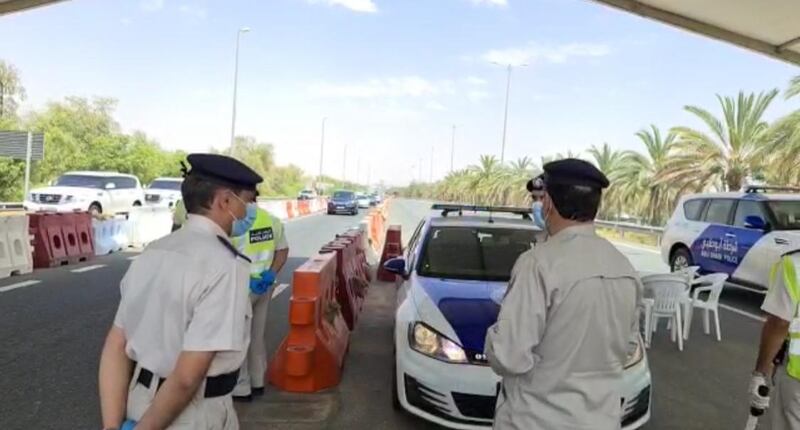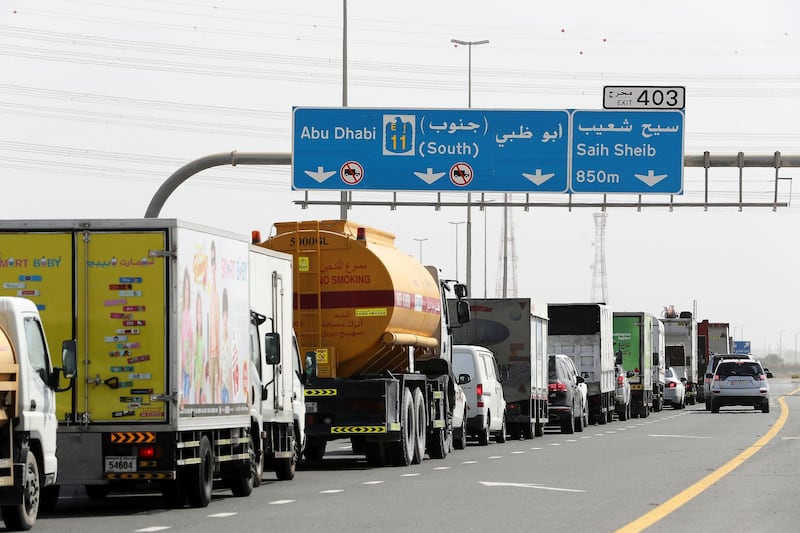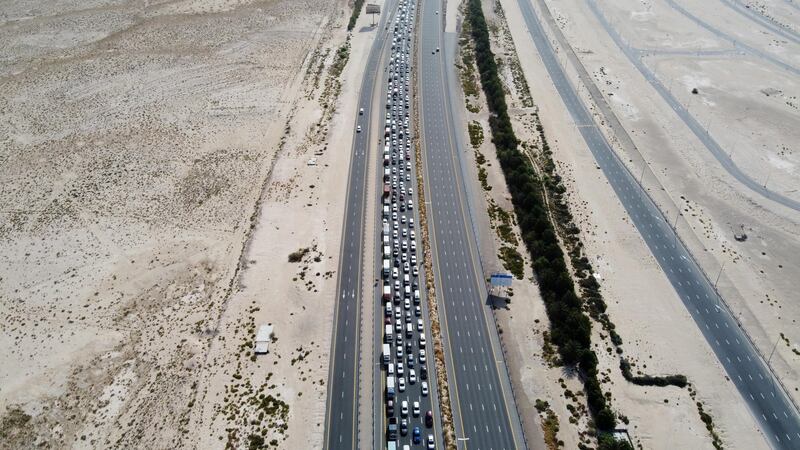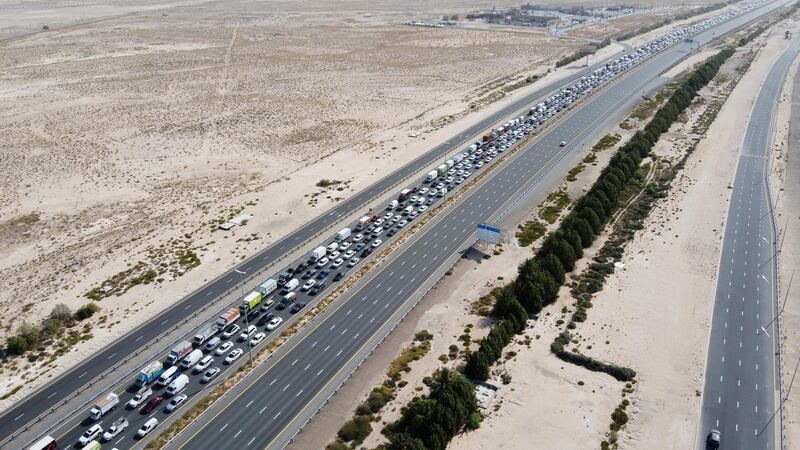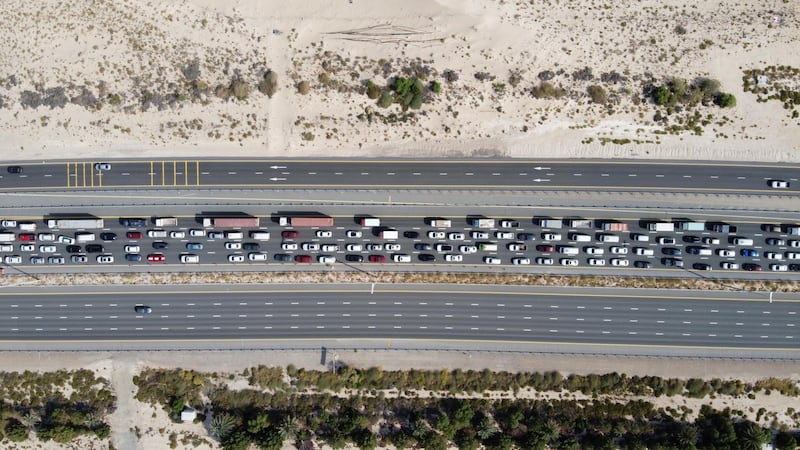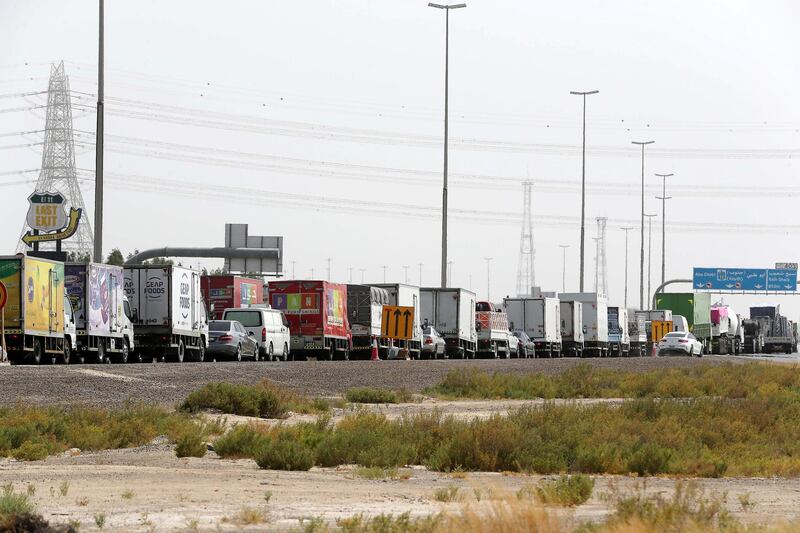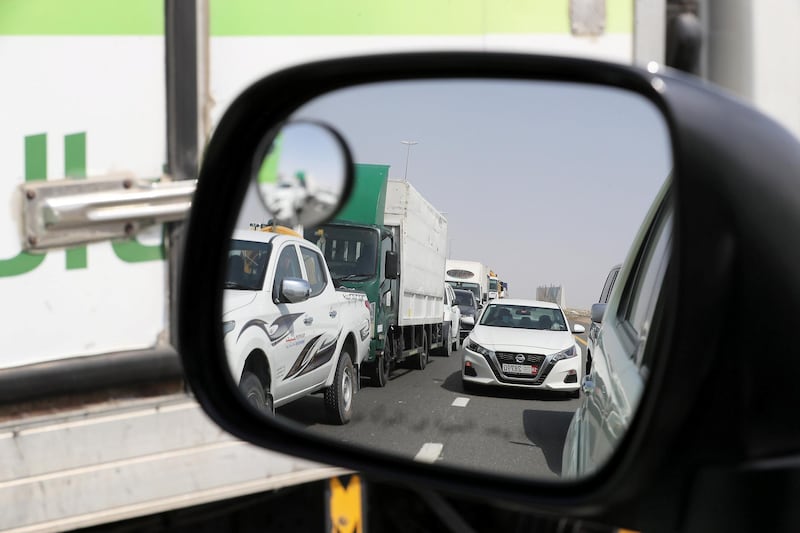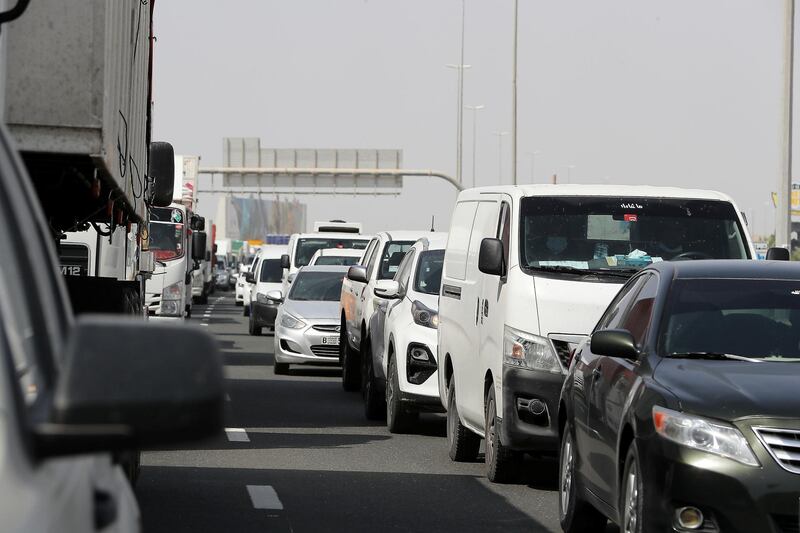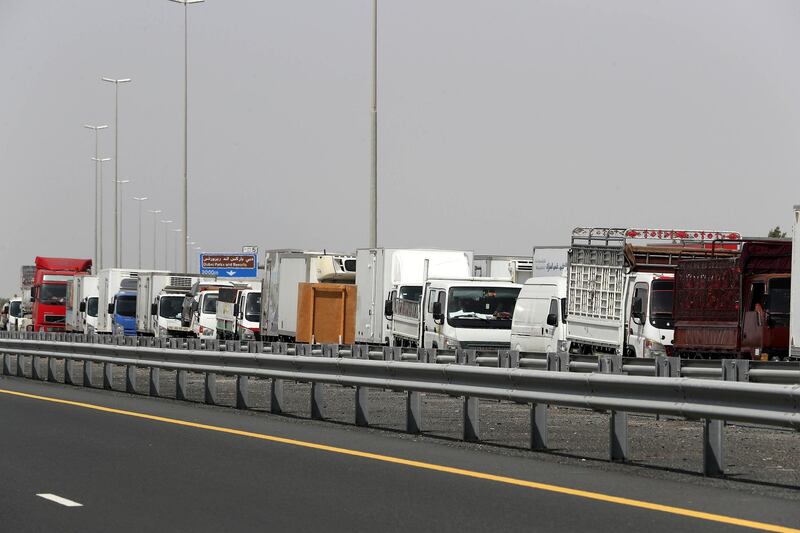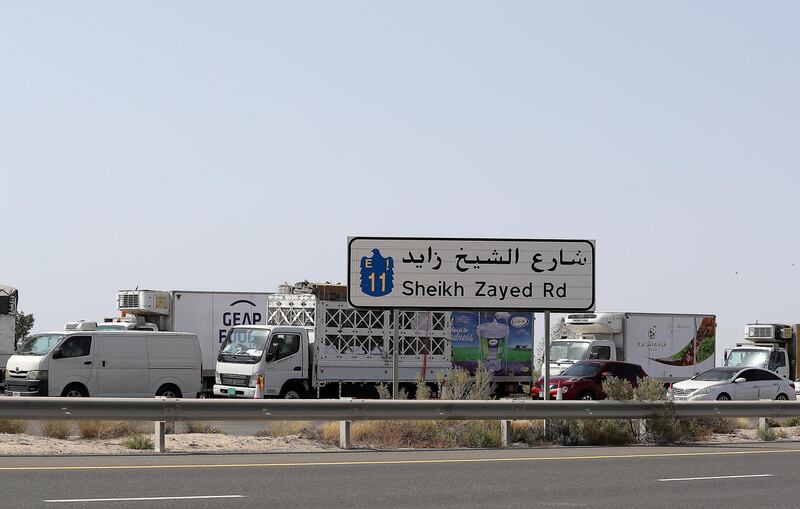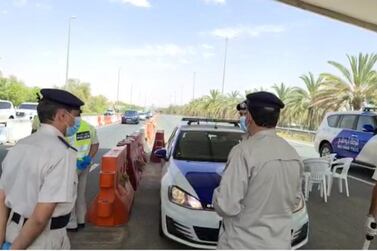Latest: Abu Dhabi changes entry rules for residents to allow for 48-hour trips
Abu Dhabi has put in place a new system to allow people to enter the emirate.
Drivers are permitted to cross the border if they can show police the results of a negative Covid-19 test.
There are exceptions – for goods vehicles, for example, and specific government workers.
On Tuesday, officials said that the emirate had "achieved a low number of patients requiring hospital treatment" with many facilities now free of cases but this decline in cases required continued testing and restrictions on movement to avoid further infections.
Authorities said the decision is part of a set of preventive measures and aims to support the emirate's National Screening Programme with the objective of reducing infections.
How does the system work?
Restrictions on movement into Abu Dhabi have been in force since June 2 to stem the spread of coronavirus. A permit system allowed people to enter in some circumstances.
Now, the emirate will allow people to enter if they can prove they are Covid-free.
Anyone crossing the border, including on Sheikh Zayed Road and Al Ain Road, among others, will be stopped at police checkpoints.
Entry to Abu Dhabi allowed with negative Covid-19 test
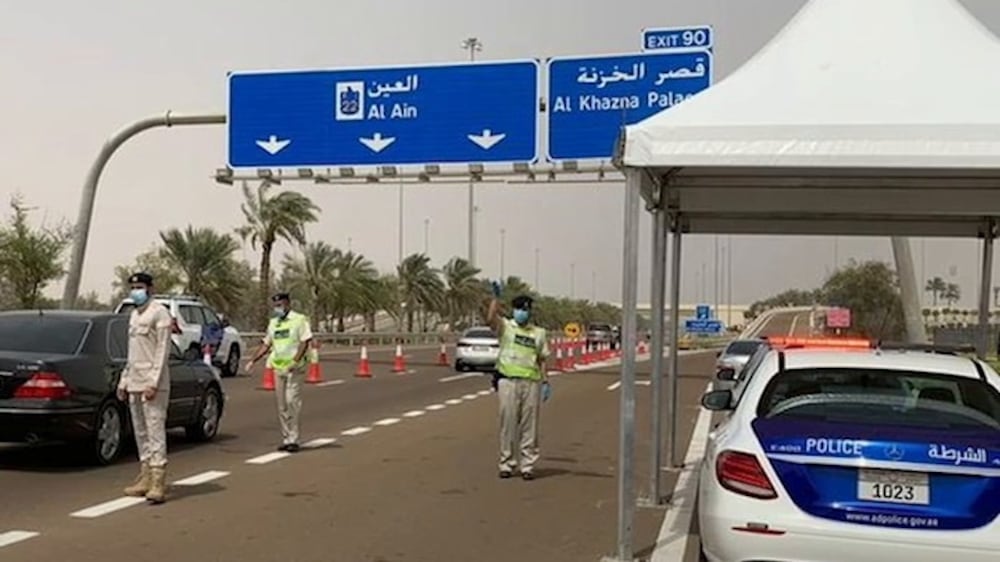
The traveller must provide evidence they had a PCR nasal swab and tested negative for the virus recently. They have 48 hours to enter the emirate from when they receive the result. Any longer and the test will have to be repeated.
The hospital can send your results to the Al Hosn app, which is used by the government's contact tracing teams, or by text message. The test can be carried out at any hospital recognised by the National Screening Centre.
The traveller can then continue their journey into Abu Dhabi, keeping in mind that masks and social distancing are mandatory.
On Tuesday, officials said the measure would remain in place until further notice and "will depend on continued monitoring and further positive outcomes that have been seen in recent weeks, and the conclusion of the National Screening Programme."
Further details on the decision to allow entering the Emirate of #AbuDhabi with a COVID-19 negative test result within 48 hours from receiving the results. pic.twitter.com/AeyUDRYdA1
— مكتب أبوظبي الإعلامي (@admediaoffice) June 30, 2020
How much does it cost to get a test?
It depends where you go.
A test at a government-run drive-through centre costs Dh370 to most people, but it is free to some.
People who can be tested free of charge include pregnant women, people with chronic diseases, the disabled and anyone over the age of 50. It is also free for anyone who has come into contact with someone who has the virus and those who are presenting symptoms of Covid-19.
Costs vary at private clinics.
Aster Hospitals charge Dh500 for a PCR test for someone showing no symptoms of coronavirus, with results screened in a private lab.
Aster Clinics, part of the same medical chain, charge Dh330 for the same PCR test.
Because results take between 24 and 48 hours to return, the group has not yet reported a spike in demand for tests.
VPS Healthcare, which includes all Burjeel and Medeor hospitals and clinics, charges Dh370, as does Mediclinic's various facilities and any Seha screening centre.
At the height of the Covid-19 crisis, VPS carried out 4,000 PCR tests per day, which has now fallen to about 2,000 per day.
Asked about how testing every two days could become costly to commuters, the Abu Dhabi Emergency Crisis and Disasters Committee for Covid-19 said they recommended people travel between Abu Dhabi and other emirates only if necessary.
"The decision is not aimed at increasing your expenses. We call on everyone to commit and not go out unless it is necessary. But there are families who wish to leave Abu Dhabi and, as this is a personal decision, they must consequently bear the cost of this matter," the authority said.
Who is expected to use the system?
Anyone who needs to be in Abu Dhabi for work or meetings from this week.
Abu Dhabi residents travelling to Dubai and the Northern Emirates, for work or leisure, would have to get tested before they return.
Anyone in a vehicle attempting to enter Abu Dhabi will need to present a medical certificate, except for children under 12. Domestic workers must also have a valid medical certificate to enter the emirate.
All cars will be stopped at the border to ensure compliance with the measure.
"People who commute daily are advised to organise their time so they are able to take the test and obtain the result within the 48hr time period to be able to enter," said a statement released by the Abu Dhabi Government.
"People who ordinarily commute daily to Abu Dhabi are advised to reduce or limit their movement during this time, in order to protect themselves and their families from the risk of infection."
Authorities recommended the public stay at home whenever possible. They must also consider how long it will take to get an appointment for a test and a result before planning any journeys, they said.
The 48-hour validity begins on receipt of the result, which may take up to five days to process.
The test system was introduced on Monday.
Abu Dhabi resident Emma Button left the capital on Monday morning to attend a civil court case in Dubai. When she attempted to return five hours later, shortly after the new rule came into force, she was denied entry.
She applied for a permit under the old system to return to Abu Dhabi that afternoon, but was rejected. She drove to Dubai anyway.
"The court said don’t worry about your permit, show that to the border control,” she said.
“I got to the border [on the way back] and was told they had changed the rules that morning so you now have to have a Covid-19 test.”
Ms Button returned to Dubai, got a Covid test at a hospital on Tuesday, and was awaiting the results.
Shelina Jokhiya, 40, from the UK, owns Decluttr Me in Dubai, which works with companies to organise their offices. She has been waiting to visit three Abu Dhabi clients, and is now weighing up whether it is possible to see them in person.
"We thought with Abu Dhabi opening I could go, but it won't work with doing the test each time I go for a client session," she said.
"I could stay in Abu Dhabi but that will cost extra money."
Are there any exceptions?
Yes, vehicles transporting goods and mail vans are exempt from the rule.
Workers not based in Abu Dhabi are still prohibited from entering the emirate.
People with medical appointments for cancer or kidney-related treatment do not need to get a Covid-19 test to enter Abu Dhabi.
Children under 12 are also exempt.
According to Abu Dhabi Government Media Office, representatives from ministries, local departments, diplomatic entities, companies, bureaus, offices of the ruling family and anyone on a special mission may apply for a one-day Mission Permit that lasts 14 hours, from 6am to 8pm. If entering Abu Dhabi outside of that time period, a test is required. People in this group must be tested every 14 days. To apply for a one-day permit, email: ops@adloc.gov.ae
Medical staff are not exempt from presenting a medical certificate but their work requires them to be frequently tested anyway.
